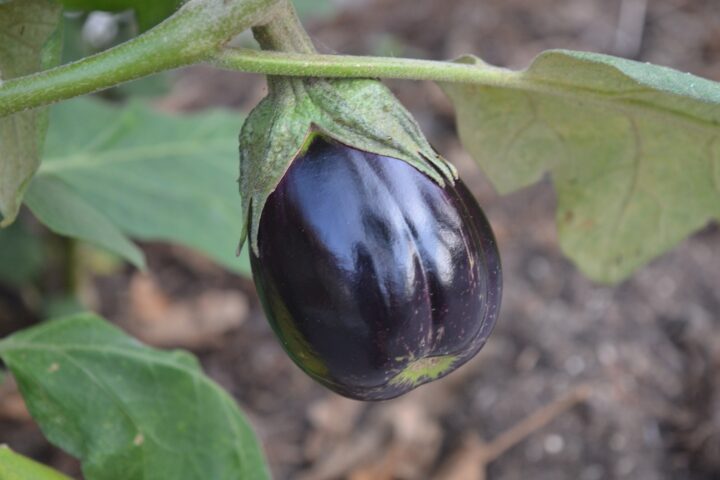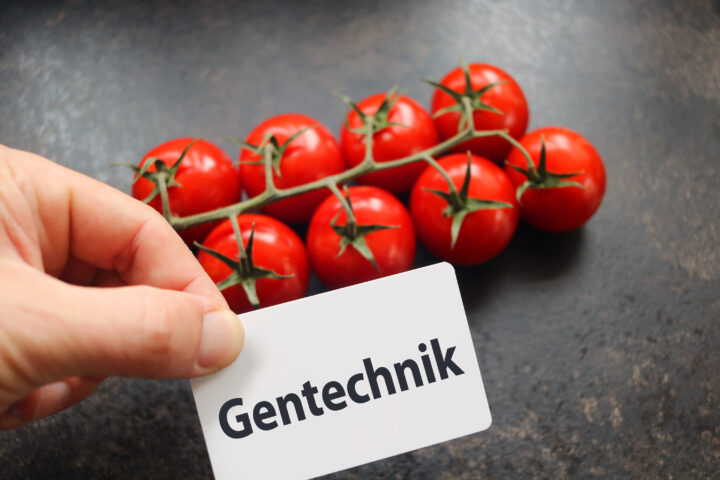
«Organic in this country, banned in the Philippines»
In the Philippines, Greenpeace has obtained a ban on Bt aubergines and golden rice. Incredibly, the same bacteria that the environmental organisation defames as dangerous there is being praised as organic in Switzerland.
Thursday, June 20, 2024
The fact that the Supreme Court in the Philippines has banned the cultivation of genetically modified Golden Rice and Bt aubergines (Bacillus thuringiensis) has caused quite a stir. The decision was particularly criticised by the government and in scientific circles. After all, Golden Rice can save the lives and eyesight of thousands of children and combat malnutrition, which is so important. Golden Rice was never cultivated for profit. «It was done to save lives», Adrian Dubock, member of the Golden Rice Humanitarian Board, is quoted as saying in the Guardian.
The ban on Bt aubergines, which was brought about by a Greenpeace lawsuit, is all the more striking when you consider the function of Bacillus thuringiensis. It is a valuable soil bacterium that has been used for several decades to control various insect larvae and beetles. The bacterium produces so-called Bt proteins, which are toxic to some insect pests. This enables the plant to protect itself from pests. The technology is precise – it only combats pests that are directly attacking the plant.
Farmers in developing countries such as Bangladesh in particular are making use of Bt aubergines. This means they have to use fewer pesticides and can protect their yields. In the Philippines at least, this is now history.
In this country, Bacillus thuringiensis fights the Colorado potato beetle
It's hard to believe that what Greenpeace and co. are fighting so fiercely against even has an organic halo in this country: Bacillus thurigiensis is the active ingredient in a biocontrol recommended by the Research Institute of Organic Agriculture (FibL) to combat the notorious Colorado potato beetle.
Notorious because, not so long ago, whole armies of children had to painstakingly pick these creepy-crawlies by hand from potato plants and nightshade plants. Many older people can still remember this child labour.
The FibL praises the active ingredient against the Colorado potato beetle as «selective and not harmful to bees». The active ingredient is even listed on the FibL's «auxiliary substances list» for 2024 and is approved for potatoes, aubergines and many other crops.
What is praised in this country is supposed to be dangerous when used on the other side of the world? The layman is amazed and the expert is astonished. It's high time Greenpeace had a rethink.
Sources
Kindly note:
We, a non-native editorial team value clear and faultless communication. At times we have to prioritize speed over perfection, utilizing tools, that are still learning.
We are deepL sorry for any observed stylistic or spelling errors.
Bt aubergines and golden rice are banned in the Philippines, but organic in Switzerland.
Related articles

Healthy eggplants thanks to Bacillus thuringiensis
Insect pests like fruit and shoot borers pose a significant threat to food security in many regions of the world. External application of chemical insecticides has proven unsuitable. Therefore, the research industry has high hopes for biologics.

Science resists ban on GMO crops
The Supreme Court in the Philippines wants to stop the cultivation of genetically modified plants Golden Rice and Bt aubergine (Bacillus thuringiensis). This is anything but well received by the government and the scientific community: The ban could jeopardise the country's food security.

With false narratives against genetic engineering
To denigrate green genetic engineering, narratives that do not stand up to scrutiny keep popping up in the public debate. The aim in each case is political. Recently, the false claims are intended to prevent the regulation of new breeding methods such as Crispr Cas from being technology-friendly.

ARTE documentary: Genetic engineering in organic farming?
The ARTE documentary “Genetic engineering in organic farming?” examines key controversial questions of modern agriculture: Is the general exclusion of new breeding technologies still up to date? Can the resistance of organic farming be justified scientifically?

The Great Suffering of Farmers
Fire blight, Japanese beetles, or grapevine yellows – farmers in Valais, too, are increasingly feeling helpless in the face of the threats posed by nature. More and more often, they lack the means to effectively protect their crops. This makes it all the more important for the Federal Council to place a pragmatic balancing of interests at the forefront when setting threshold values.

'Tomatoes on your eyes'
The submitted “Food Protection Initiative” calls for “GMO-free food.” Leaving aside this illusory demand, its adoption would mean more bureaucracy, more trade barriers, and less innovation. The Swiss Farmers’ Union describes the proposal as “unnecessary” and warns of a setback to the goal of achieving an even more sustainable agriculture.

How our daily lives end up in the water
When residues in our waters are discussed, agriculture is often portrayed as the main culprit. Yet a closer look shows that the sources are diverse and often much closer to everyday life than assumed.

